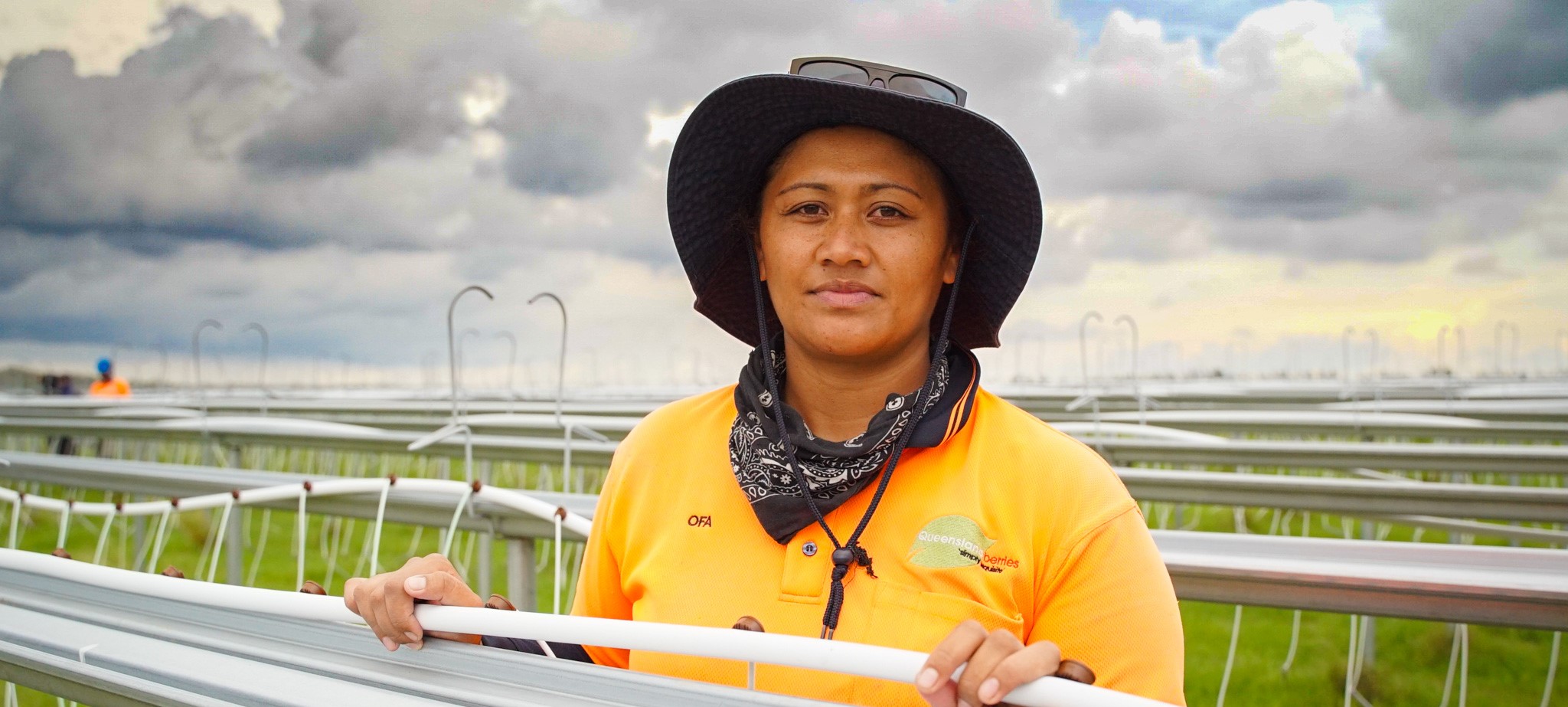Ofa Ulupano has worked in the hospitality industry for most of her professional life and until recently would never have imagined working on a farm in Australia.
Now she leads teams and trains new staff at one of the largest commercial berry farms in Australia and plans to continue working in horticulture well into the future.
'I have so many goals, and family is a big one'
Before joining the Pacific Australia Labour Mobility (PALM) scheme in 2021, Ofa worked in a café in Tonga. She liked her job, but as a single mother of 2, earning enough money to support her family was becoming difficult.
“I have so many goals, and family is a big one. I want to support my kids’ studies and I’m trying to build a house. Making money was a struggle because of COVID-19, and you have to save a lot,” she said.
Ofa successfully applied to join the PALM scheme and took up a role with Queensland Berries, a grower and supplier of strawberries, raspberries and blackberries throughout Australia.
After a few months, she was able to send money home to her family and started putting some away to build her house in Tonga.
But the benefits of working in Australia weren’t just financial.
“I’ve done picking and packing … but my main role here is supervising and leading people,” said Ofa.
“Because there were some leadership and training parts of my role back home, I could bring that experience here and I think I did really well.
“I’ve noticed I’ve really improved because the other managers here all help me. They show me what to do and it’s more experience,” she said.
Developing leadership and training skills
Queensland Berries PALM scheme Engagement Manager Ellie Brignoli said because Ofa’s leadership skills were apparent early on, they wanted to put her in a role where she could develop them.
“When Ofa first arrived, we could tell she had leadership skills. She has a way of helping anyone around her,” Ellie said.
“Now, pretty much everyone in the farm has been trained by Ofa. She’s amazing.”
The perception that women can’t do some jobs was initially a barrier for Ofa, but experience and time in her current role has improved her confidence.
“I notice one thing is my confidence. I had never done this type of job before and was hesitant when I first got the job but now, I know I can do it,” she said.
“Sometimes people don’t see a woman working in a farm. People think that we can’t do this job. But I made it. I am showing we can do it,” she said.
Ofa says that people from her community now ask her about how they can follow the same path as her.
“I think my family is proud of me doing this job. I am providing for my family. And they can see that I am inspiring more people from my community and our little village,” she said.
“My cousins, especially the women, a lot of them are messaging me asking – how do I do the same?
“I think because people see the experience I am gaining here, how I am earning money... I think many would like to follow the same pathway,” she said.
Ofa’s advice for other women is to set and stick to their goals.
“My advice for women is mindset. To never give up. If I can do it, you can do it,” she said.

